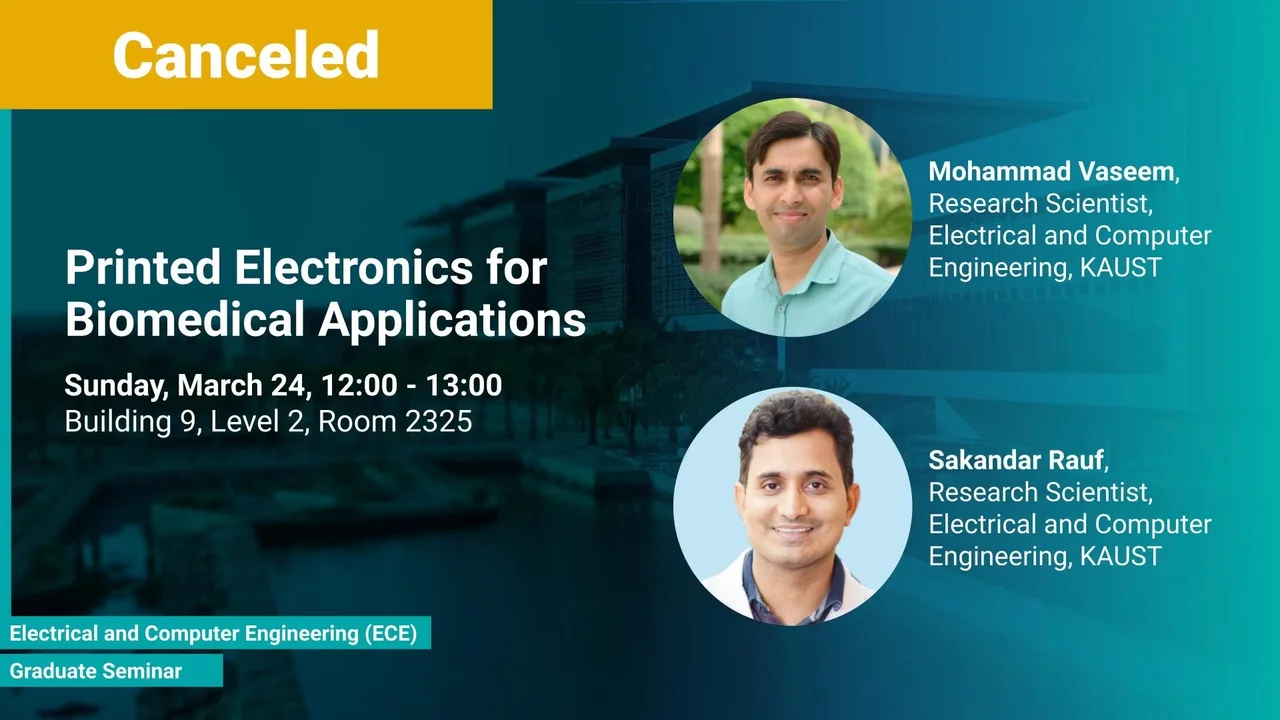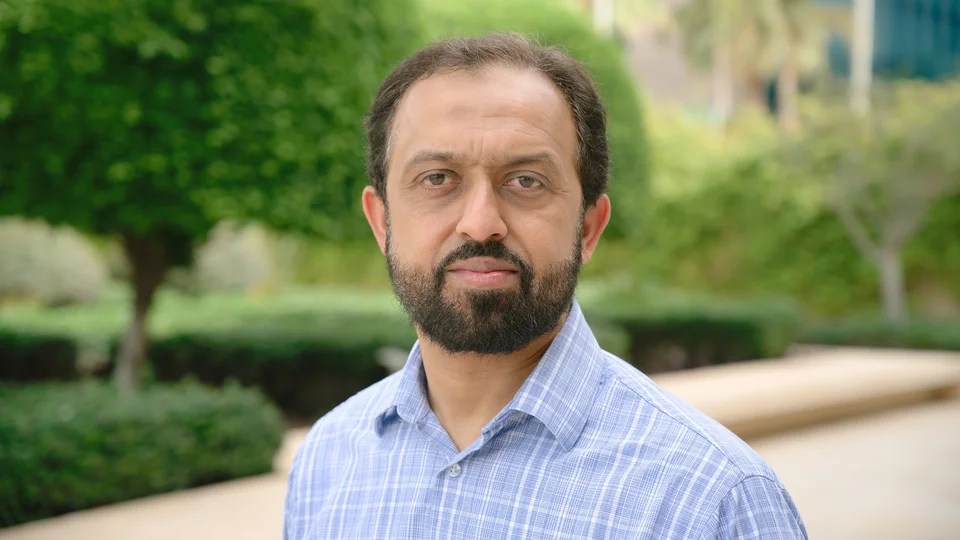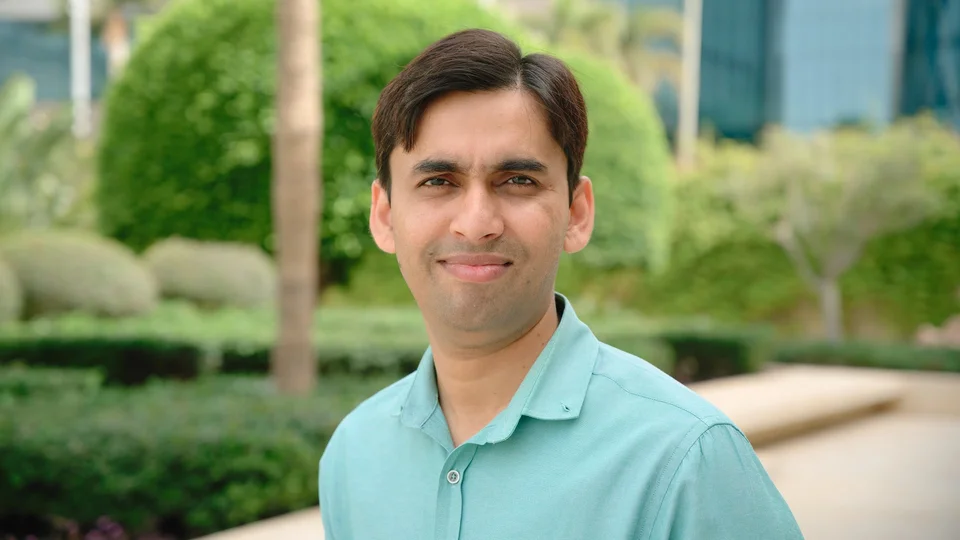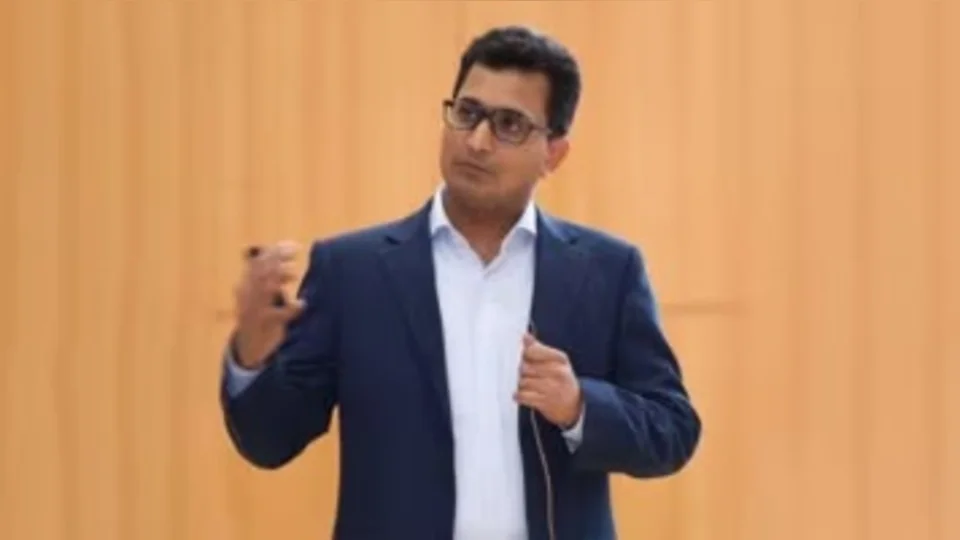
Canceled: Printed Electronics for Biomedical Applications
- Dr. Mohammad Vaseem and Dr. Sakandar Rauf, Electrical and Computer Engineering, KAUST
B9 L2 H2
The graduate seminar planned for March 24, from 12:00 to 13:00, has been canceled.
Overview
The graduate seminar planned for March 24, from 12:00 to 13:00, has been canceled.
Abstract
Advances in flexible and wearable electronics with wireless sensing system have created new paradigms of applications for smart living. One important application is the development of advanced health monitoring that enable people to stay better informed about physiological changes in their bodies. All these application in the form of sensors is required to be connected with Internet of things (IoT) for making smart decision in real time. But these sensors not only demand high volume (billions of devices) but also focus on electronics which can be compact, light-weight and flexible so that these can be worn on body. As the demand is of large volume, it is required that cost is extremely low to the extent that they are disposable. The field of printed electronics satisfied the need, however, the major challenge for printed electronics is the preparation of inks which must have functionality such as high conductivity with performance comparable to their bulk metal counterparts, smart electronics inks that can tune their properties on demand, sensing inks for different biomedical applications, etc. The ability to create inks for various sensing materials and then print them on unconventional mediums such as plastics, papers, and textiles has opened up a plethora of new sensing applications. In the first half of the talk, Dr. Vaseem will present the recent development of the materials and inks at IMPACT lab, KAUST. In the latter half, Dr. Sakandar will present various biomedical sensors, such as a Bluetooth enabled skin temperature monitoring system based on a novel printed VO2 sensor, a smart bandage which can detect bleeding, exerted pressure and early signs of infection in chronic wounds, and a fully printed Wireless ECG System. The promising results of these designs indicate that the day when these low-cost sensors will be worn on a regular basis for remote health monitoring is not far off.
Brief Biography
Dr. Mohammad Vaseem received the M.Sc. degree in Physical Chemistry from Aligarh Muslim University (AMU), Aligarh, India, in 2005, and the Ph.D. degree in Chemical Engineering from Chonbuk National University, Jeonju, South Korea, in 2011. From 2011 to 2014, he was a Post-Doctoral Fellow in World Class University (WCU) Project and Brain Korea 21 Project with Chonbuk National University. From 2015 to 2018, he was a Post-Doctoral Fellow in the Electrical Engineering Program with KAUST, where he is currently a Research Scientist. He has more than 15 years of experience in material preparation and ink-formulation for printed electronics. From last 9 years, his focus is on functional ink-materials for RF electronics and sensor. He has authored more than 60 publications, 3 book chapters, 5 patents and 80 research paper presentations at various conferences.
Dr. Sakandar Rauf received his Ph.D. (Field of Study: Biosensors) from the University of Glasgow, U.K., in 2010. He obtained an MPhil degree in Micro- and Nanotechnology Enterprise from the University of Cambridge, U.K., in 2005 and an MPhil in Biotechnology from the National Institute for Biotechnology and Genetic Engineering (NIBGE), Pakistan, in 2004. Dr. Rauf studied M.Sc. in Physical Chemistry from Islamia University Bahawalpur, Pakistan, in 2001. He received the Cambridge Commonwealth & DFID shared Scholarship from the University of Cambridge, the Dorothy Hodgkin’s Postgraduate Award for his Ph.D. studies from the University of Glasgow, and the UQ Postdoctoral Research Fellowship from the University of Queensland, Australia. After joining KAUST, Dr. Rauf continued his work on biosensors and microfluidics. Dr. Rauf published his work in well-known peer-reviewed international journals, such as Advanced Materials, Analytical Chemistry, Biosensors and Bioelectronics, Chemical Communications, Clinical Chemistry, Lab Chip, and Sensors and Actuators B: Chemical. He is interested in the development of next-generation biomedical devices for point-of-care diagnostics.


